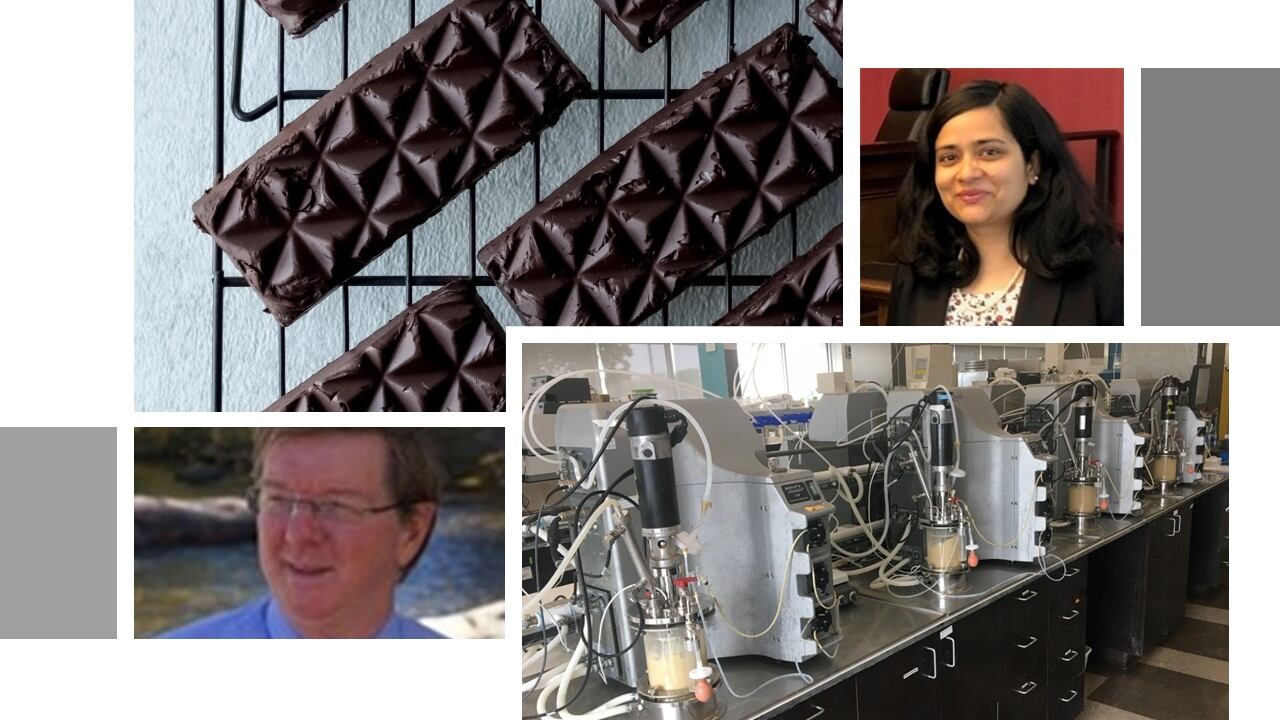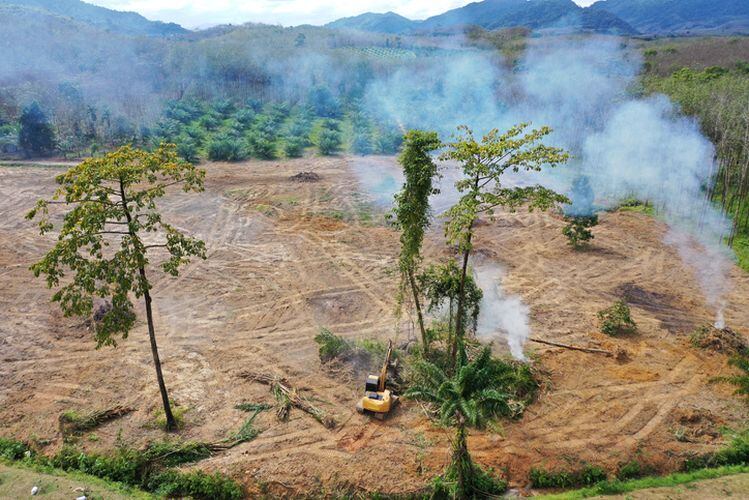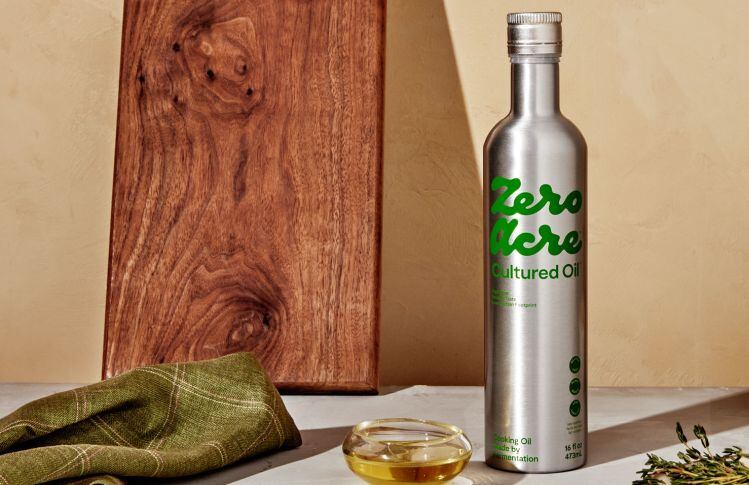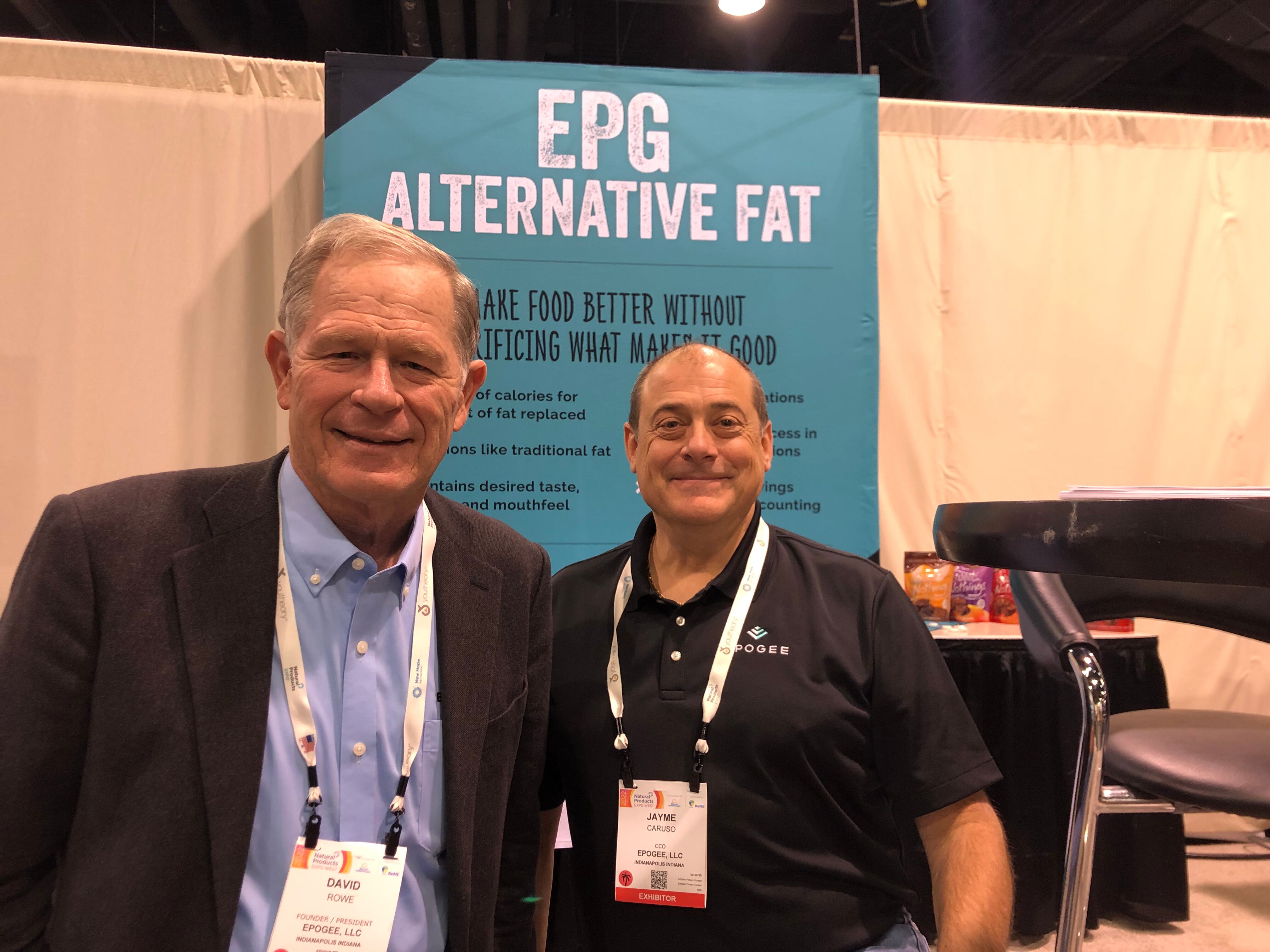While most consumers are unaware of the challenges in the cocoa supply chain – which could make the marketing of ‘alternative’ products in this space challenging in the short term – volatile commodity prices, humanitarian issues, and the negative environmental impacts tied to the mass production of cocoa and some other crops have prompted many industry stakeholders to explore alternatives that are either bio-identical to cocoa ingredients or match their functionality.
Seminal Biosciences, co-founded by microbiologist Alka Roy and former Cargill executive Dr Stephen Toon in 2020, is working with San Diego-based Nucelis, which specializes in strain development and scale-up for microbial fermentation, and is using a strain of oleaginous yeast (Yarrowia lipolytica) that has been scaled up before, Toon told FoodNavigator-USA.
“We've got an organism that has already been demonstrated to have GRAS status [to produce other products] and has been demonstrated at scale; we understand how it behaves in a scale-up process and how to manage it in the downstream process.
“We also understand how to bring it back into alignment if we have an upset at the process, and we’ve got a team that has the experience of large-scale fermentation, and that gives us a significant advantage.”
Microbial fermentation unit economics: ‘It all comes down to rate, titer, and yield’
The yeast strain Seminal Bio is working with can produce “roughly 60% of its body weight in fat in a relatively rapid period of time and with high yield on a carbon basis from sugar” said Toon.
“It all comes down to rate, titer, and yield. How fast can I produce this material? How well can I convert the raw materials that I'm paying for into product? And what's the final concentration?
“You have to look at it as a whole process and design the upstream fermentation with the downstream extraction in in mind, but the extraction process uses standardized equipment.”
When it comes to manipulating the organism or its environment to create the target fat, he said, “Our partner Nucelis has a particularly good understanding of the genetics of the microorganism.
“The organism has the capability of producing the backbone, and we can come in and modify that backbone for specific functionalities and as we begin to learn more about how to perform those modifications, we can gear it both towards producing cocoa butter type material, or more functional fats for other applications.
“We have the capability to use CRISPR techniques, but we're not limiting ourselves to one particular toolbox.”
Can you call it cocoa butter?
But is the fat produced by the yeast identical to cocoa butter from cocoa plants, and if not, how will it be labeled on ingredients lists?
“It's a reasonable question,” said Toon, who said Seminal Bio has developed fats with the same flavor profile, moisture-holding capabilities and ‘melt in your mouth, not in your hand’ properties of cocoa butter.
“There are precedents out there so maybe ‘non-bean cocoa butter.’ We're working through understanding the regulatory pathway, but we may not necessarily be able to fall into the classic cocoa butter category.”
Capital-light strategy
Asked about the manufacturing setup, Toon, a former principal scientist at Cargill who has “worked all over the world to scale up some of the world's largest fermentations,” acknowledged that there have been “supply chain issues” when it comes to scaling up fermentation operations in the space but said that “the capacity is there” for people with the right contacts and experience who know what they are looking for.
Seminal Bio, which is currently raising seed capital, is “still working on developing the base case process, which we've done at a pilot scale and produced test article,” said Toon, who first started looking at micro-organisms capable of producing large amounts of oil when he worked on algae at the National Renewable Energy Laboratory in the late 1980s and early 1990s.
“The next step is to continue to optimize that process [with Nucelis] and begin to produce larger quantities of test article under manufacturing conditions that would allow us to really test it with customers and potentially in the marketplace.
“Our goal would be to go with a capital-light strategy and work through a toll manufacturing operation in the first instance.”
‘Our benchmark is Hershey dark’
So, what kind of feedback has the company had from potential partners?
CEO Alka Roy explained: “Our benchmark is Hershey dark and our chocolate has been tried by a number of people and they've all said that it tastes the same.”
While concerns over ESG issues relating to cocoa from deforestation to child labor were driving interest in the company, she said, other factors including supply chain security and product quality and consistency were equally important.
“The feedback we have received from some chocolate manufacturers is that based on which part of the country the cocoa butter is sourced from, the melting points and other characteristics tend to differ, whereas we can standardize the quality and provide a reliable supply by manufacturing in bioreactors.”
Supply/demand mismatch is ‘going to lead to a major supply crunch in about a decade or so, so we want to get ahead of this problem’
As for supply and demand for cocoa butter, which is used in a variety of applications from chocolate to skincare products, she said, challenges lay ahead.
“Chocolate alone is a $125bn industry [market size estimates vary widely depending on the data source, although all sources agree the market will continue to grow] but in 20 years, it will double in size. Right now, 70% of the cacao beans are grown in the Ivory Coast and Ghana and the land there is being depleted due to soil erosion and climate change, so this is going to lead to a major supply crunch in about a decade or so, so we want to get ahead of this problem.”
The business model
But won’t Seminal Bio’s chocolate still use cocoa powder from cocoa beans along with fermentation-based fats in its formulation?
“Right now we are focusing on replacing cocoa butter,” she said, “But cocoa powder is the next target [for the food tech industry].”
As for the business model, said Toon, “We could go b2b or potentially go direct to customers with a chocolate product, but the idea would be can we potentially partner with someone that would allow us to get to market faster.”
Domestic supply chain for cocoa butter
But is there really a market for a chocolate product made with ‘designer fat’ rather than something that can be labeled as cocoa butter, especially as most consumers are likely blissfully unaware of the problem companies such as Seminal Bio are trying to solve?
“The message is starting to get out there,” claimed Toon. “This is one part of that message. At the same time, we can also beat them [conventional cocoa butter] on quality, we can potentially beat them on price, and we can provide a steady supply chain and a consistent product.
"The fact we can produce this type of product in the US and be able to supply it to some of the large manufacturers in a more localized fashion has added benefits.”
Interested in biomass and precision fermentation?
The 3rd Fermentation-Enabled Alternative Proteins Summit will return to San Francisco January 31-Feb 2 to explore the challenges around scaling-up fermentation-enabled production platforms to commercialize clean-label, animal-free, and regulatory-approved alternative meat, dairy, eggs, seafood and functional protein ingredients.




